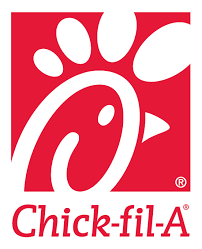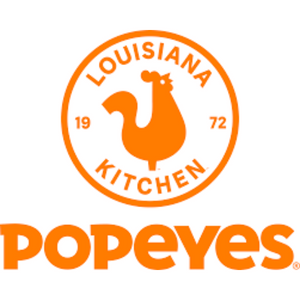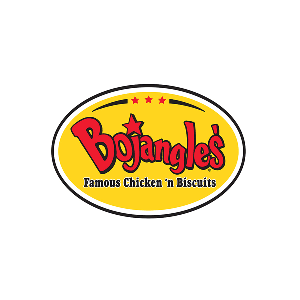Raising Cane’s Franchise in 2025: Costs, Fee & FDD
Thinking about investing in a fast-food franchise? Discover why Raising Cane’s, with its simple menu and strong brand loyalty, might be a game-changer. Explore costs, revenue potential, and more in our in-depth analysis!
Table of Contents:
Raising Cane’s Chicken Fingers, founded in 1996 by Todd Graves and Craig Silvey in Baton Rouge, Louisiana, has swiftly become a beloved staple in the fast-food industry. The brainchild of Graves, who initially faced skepticism over his simple chicken finger concept, the restaurant has grown significantly, proving the value of a focused menu. Graves and Silvey’s dedication to quality and consistency has carved out a unique niche, emphasizing their motto of “One Love” – serving the highest quality chicken finger meals. Raising Cane’s is celebrated for its straightforward, no-frills approach, which has garnered a loyal customer base and a strong brand identity in a crowded market.
At the heart of Raising Cane’s menu are their famous chicken fingers, made from fresh, never frozen chicken tenderloins, marinated, hand-battered, and cooked to golden perfection. The core offering includes chicken finger meals, crinkle-cut fries, Texas toast, coleslaw, and their signature Cane’s Sauce, a closely guarded secret. Complementing the main menu are freshly brewed sweet tea and lemonade. The simplicity and quality of their offerings appeal primarily to families, young adults, and college students who crave a reliable and delicious meal. This targeted approach ensures that their core market remains dedicated and enthusiastic.
Raising Cane’s has grown exponentially since its inception, boasting over 550 locations across the United States and international markets, including Kuwait, Bahrain, and Saudi Arabia. This expansion reflects the brand’s strong operational model and universal appeal. Each location typically serves hundreds of customers daily, contributing to the chain’s impressive reputation for quick service and high customer satisfaction. The focus on quality and customer experience has been instrumental in building a robust brand that consistently draws crowds and encourages repeat visits.
One of the standout features of Raising Cane’s is its commitment to community engagement and corporate social responsibility. The company frequently participates in local events and charity initiatives, reinforcing its image as a community-centric brand. Additionally, Raising Cane’s is known for its vibrant and engaging store environments, often adorned with local flair and Cane’s signature decor, enhancing the overall dining experience. Despite not currently offering franchise opportunities in the U.S., Raising Cane’s continues to attract attention from potential franchisees eager to be part of this thriving and distinctive brand.
Raising Cane’s is not currently offering franchise opportunities in the United States. The company has chosen to focus on corporate-owned locations to maintain strict quality control and consistency across its brand. This approach ensures that every Raising Cane’s restaurant upholds the same high standards for which the chain is known. However, if Raising Cane’s were to consider franchising in the future, it would undoubtedly attract significant interest from potential franchisees eager to join this popular and successful brand.
Raising Cane’s Franchise Insights
- Founder Story: Todd Graves worked as a boilermaker and fisherman to raise funds for the first Raising Cane’s, highlighting his dedication and entrepreneurial spirit.
- Simple Menu: The menu focuses almost exclusively on chicken fingers, emphasizing quality over quantity and ensuring consistency across all locations.
- Cane’s Sauce Secret: The recipe for their signature Cane’s Sauce is a closely guarded secret, known by only a few within the company.
- Rapid Growth: Since its inception in 1996, Raising Cane’s has expanded to over 550 locations, showcasing its strong market appeal and operational success.
- International Presence: The brand has expanded internationally with locations in Kuwait, Bahrain, and Saudi Arabia, demonstrating its global appeal.
Raising Cane’s Franchise Key indicators
Annual Revenue
+$4 billion
Total U.S. Locations
Over 700
How much does it cost to open a Raising Cane’s franchise?
Understanding the potential investment size and capital requirements is crucial when considering opening a Raising Cane’s franchise. While it is not currently possible to become a franchisee of Raising Cane’s, you can still see the costs to open up a new Raising Cane’s location. These financial commitments, including equipment costs, and ongoing operational expenses, impact the feasibility and profitability of the venture. Thoroughly evaluating these factors ensures that potential franchisees are prepared for the financial responsibilities and can make informed decisions about their ability to sustain and grow the business, ultimately contributing to long-term success.
Min & Max Investment
Opening a Raising Cane’s location involves several key costs. As Raising Cane’s does not produce an up to date Franchise Disclosure Document (FDD), we can estimate the costs for a Raising Cane’s based on public filings and analysis. The costs to open up a new Raising Cane’s location are estimated to be between $1,720,000 to $2,515,000. The lower costs are expected for smaller location conversions and the higher costs are expected for new and larger locations.
Below are the estimated investment cost range to open a new Raising Cane’s:
| Type of Expenditure | Minimum Investment | Maximum Investment |
|---|---|---|
| Franchise Fee (estimate) | $50,000 | $50,000 |
| Real Estate and Building | $800,000 | $1,200,000 |
| Construction and Build-Out | $450,000 | $650,000 |
| Equipment, Fixtures, and Signage | $300,000 | $400,000 |
| Initial Inventory | $20,000 | $30,000 |
| Training Expenses | $10,000 | $20,000 |
| Opening Advertising and Promotions | $20,000 | $30,000 |
| Insurance | $5,000 | $10,000 |
| Working Capital | $50,000 | $100,000 |
| Miscellaneous Costs | $15,000 | $25,000 |
| Total Estimated Investment | $1,720,000 | $2,515,000 |
These estimates provide a general idea of the potential investment required to open a Raising Cane’s, should they decide to offer franchise opportunities in the future. The actual costs can vary depending on location, market conditions, and other factors.
Required Capital
Since Raising Cane’s does not currently franchise in the U.S., there are no official figures for the required capital, liquid assets, and net worth to open a Raising Cane’s franchise. However, based on industry standards for similar fast-casual restaurant franchises, we can provide some estimates for if and when Raising Cane’s does decide to franchise in the U.S.:
- Initial Investment Typically, opening a fast-casual restaurant can require an initial investment ranging from $1.7 million to $2.5 million, depending on location, size, and build-out costs. This estimate includes costs for real estate, equipment, initial inventory, and other startup expenses. Assuming that you will finance your franchise investment, you should plan to have 20% of the total investment amount in the form of equity (cash) for the investment.
- Liquid Assets For similar franchises, it is common for franchisors to require potential franchisees to have liquid assets of at least $500,000 to $750,000 to ensure they have the necessary funds to cover initial and ongoing operational costs.
- Net Worth A net worth requirement for comparable fast-casual franchises might range from $1.5 million to $2.5 million, ensuring that the franchisee has sufficient financial stability and resources to sustain the business.
These figures are estimates based on industry standards and may not reflect Raising Cane’s actual requirements if they ever decide to franchise in the future.
How much does a Raising Cane’s franchise owner make?
While Raising Cane’s is not currently franchising in the U.S., it helps to know how much a potential Raising Cane’s franchise owner would make for if and when they decide to franchise. Calculating the salary of a hypothetical Raising Cane’s franchise owner involves analyzing gross sales to determine total revenue, assessing operational efficiency to understand profit margins, and accounting for franchisor fees and additional expenses such as rent, utilities, and payroll. Effective management of these factors can significantly impact the profitability and financial success of a potential Raising Cane’s franchise owner. This comprehensive financial analysis helps estimate net profits, from which the owner’s salary can be derived. A clear understanding of these factors ensures accurate salary projections and financial planning for sustainable business operations.
Raising Cane’s Revenue & Gross Sales
In 2024, Raising Cane’s locations have an estimated average gross sales of $4.6 million. It is impressive given that Raising Cane’s has a limited menu offering. This strong financial performance underscores the brand’s robust consumer demand and potential for lucrative returns for Raising Cane’s.
Which key factors impact the average revenue performance of Raising Cane’s franchisees?
Several factors likely contribute to the strong performance of Raising Cane’s U.S. locations in recent years. First, the brand’s focus on quality and consistency has built a loyal customer base that values their signature chicken fingers and Cane’s Sauce. Their streamlined menu ensures operational efficiency, reducing wait times and improving customer satisfaction. Additionally, Raising Cane’s commitment to community involvement and vibrant store environments enhances their local appeal and customer experience. Strategic locations near schools, universities, and urban centers also drive significant foot traffic. Finally, their robust marketing campaigns and active social media presence help maintain high visibility and attract new customers, bolstering overall sales performance.
Raising Cane’s Franchise Operational Costs
When opening a new location, Raising Cane’s must consider several key primary ongoing operational costs to ensure sustainable operations and profitability:
- Labor Costs Wages, salaries, and benefits for employees, including managers, cooks, cashiers, and cleaners.
- Food and Beverage Supplies Costs for purchasing high-quality ingredients, including chicken, bread, sauces, beverages, and other menu items.
- Utilities Expenses for electricity, water, gas, and internet services necessary to run the restaurant.
- Rent and Lease Payments Monthly payments for the restaurant space, which can vary significantly based on location and lease agreements.
- Marketing and Advertising Ongoing expenses for local marketing campaigns, promotions, social media advertising, and community engagement activities.
- Maintenance and Repairs Regular maintenance of kitchen equipment, dining area, and exterior, as well as unexpected repair costs.
- Insurance Coverage for property, liability, workers’ compensation, and other necessary insurance policies.
- Technology and POS Systems Costs for point-of-sale systems, software subscriptions, and any tech support services.
- Cleaning and Sanitation Regular cleaning supplies and services to maintain hygiene standards in the kitchen and dining areas.
By carefully managing these operational costs, you can ensure the profitability and smooth functioning of a Raising Cane’s restaurant.
Raising Cane’s Franchise Fees
Since Raising Cane’s is not a franchise, it does not have any franchise fees. Raising Cane’s does not charge any franchise fees because it operates as a wholly corporate-owned chain rather than a franchise. This means that all Raising Cane’s locations are owned and managed by the corporate entity rather than by individual franchisees. By maintaining direct control over all its restaurants, Raising Cane’s ensures consistency in quality, service, and operational standards across all its locations. This corporate structure allows Raising Cane’s to implement its business strategies uniformly and maintain a strong brand identity without relying on external franchise operators
Raising Cane’s Franchise Earnings
The earnings of a Raising Cane’s can vary significantly based on a variety of factors including location, sales volume, operational efficiency, and cost management. However, on average, Raising Cane’s can expect to earn a significant income on a per location basis.
Raising Cane’s locations have an estimated average gross sales of $4,500,000. Based off of the average gross sales and an average restaurant operating margin of 15%, we can estimate an average Raising Cane’s location makes $675,000 in estimated earnings (EBITDA) per year. Note that if Raising Cane’s were to franchise, then a Raising Cane’s owner’s earnings would likely be $675,000, assuming that they worked in the business as a manager.
How to Open a Raising Cane’s Franchise
Raising Cane’s is not currently offering franchise opportunities in the United States, as the company has chosen to focus on corporate-owned locations to maintain high standards of quality and consistency across its brand. This centralized control allows Raising Cane’s to ensure that every restaurant delivers the same exceptional experience to customers, adhering strictly to their operational and service protocols.
However, if you are interested in being part of Raising Cane’s, you can pursue a career as a general manager at one of their locations. Here are the typical steps to become a general manager at Raising Cane’s:
- Gain Relevant Experience Start by gaining experience in the food service industry, preferably in management roles. Positions such as shift manager, assistant manager, or kitchen manager can provide valuable insights and skills.
- Education While not always mandatory, having a degree in hospitality management, business administration, or a related field can be advantageous.
- Apply for a Position Visit the Raising Cane’s careers website or job portals to find open positions. Start by applying for roles like shift manager or assistant manager to get your foot in the door.
- Internal Promotion Raising Cane’s values internal promotions. Demonstrate strong leadership, operational skills, and a commitment to their core values to advance within the company.
- Training and Development Once hired, participate in Raising Cane’s comprehensive training programs designed to equip managers with the necessary skills to run a location effectively.
- Performance Excellence Consistently perform well in your current role, showing your ability to manage staff, handle operations, and maintain customer satisfaction. High performance can lead to promotions and greater responsibilities.
By following these steps, you can work your way up to becoming a general manager at Raising Cane’s, contributing to the success of this renowned brand while building a rewarding career in the food service industry.
Pros & Cons to Opening a New Raising Cane’s Location
Pros
Strong Brand Recognition: Raising Cane’s has a well-established and respected brand, known for quality and consistency, which attracts a loyal customer base and drives sales.
Simplicity and Efficiency: With a streamlined menu focused on chicken fingers, operational efficiency is high, reducing complexity in kitchen operations and inventory management.
High Customer Satisfaction: Consistently positive customer experiences and a strong community presence enhance the brand’s reputation and encourage repeat business.
Cons
Market Saturation Risk: Expanding into markets where Raising Cane’s is already well-established may lead to competition with existing locations, potentially cannibalizing sales.
Operational Challenges: Maintaining the high standards of quality and service requires rigorous adherence to operational protocols, demanding continuous training and management oversight.
Economic Factors: Economic downturns can affect discretionary spending, impacting sales and profitability. High operating costs, including labor and food supplies, can also affect margins.






